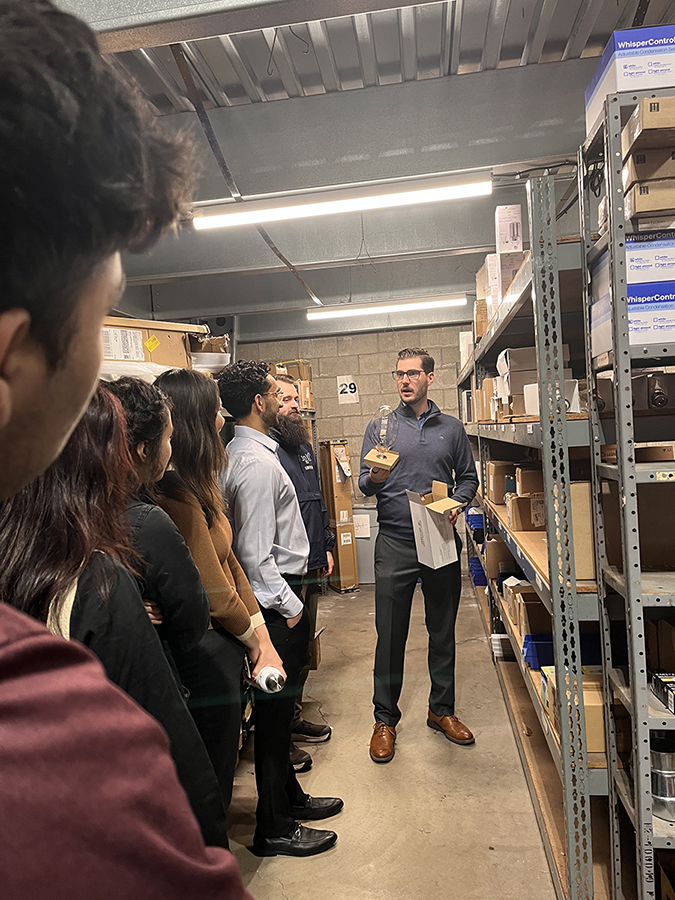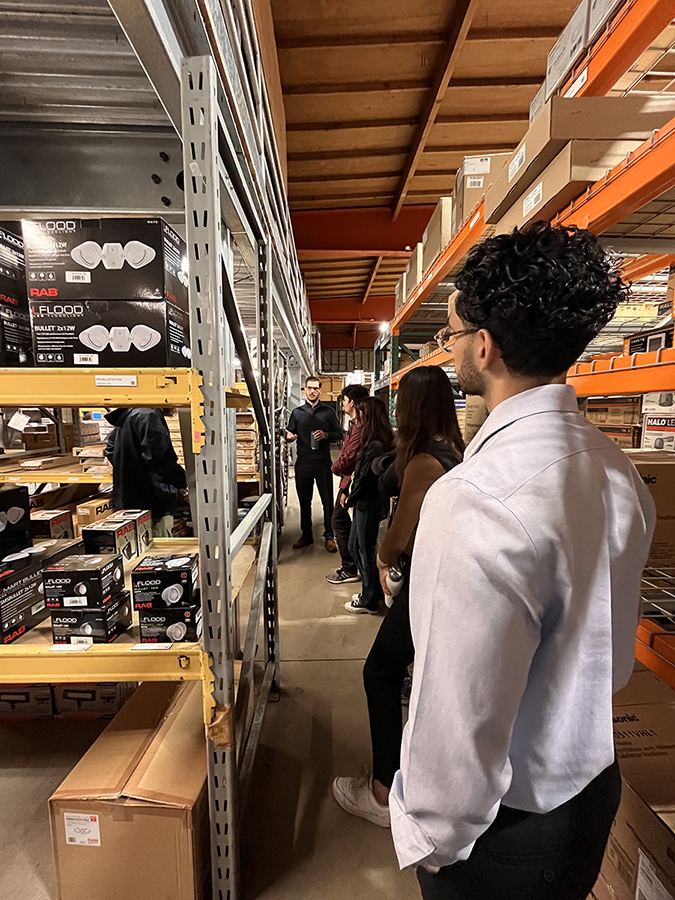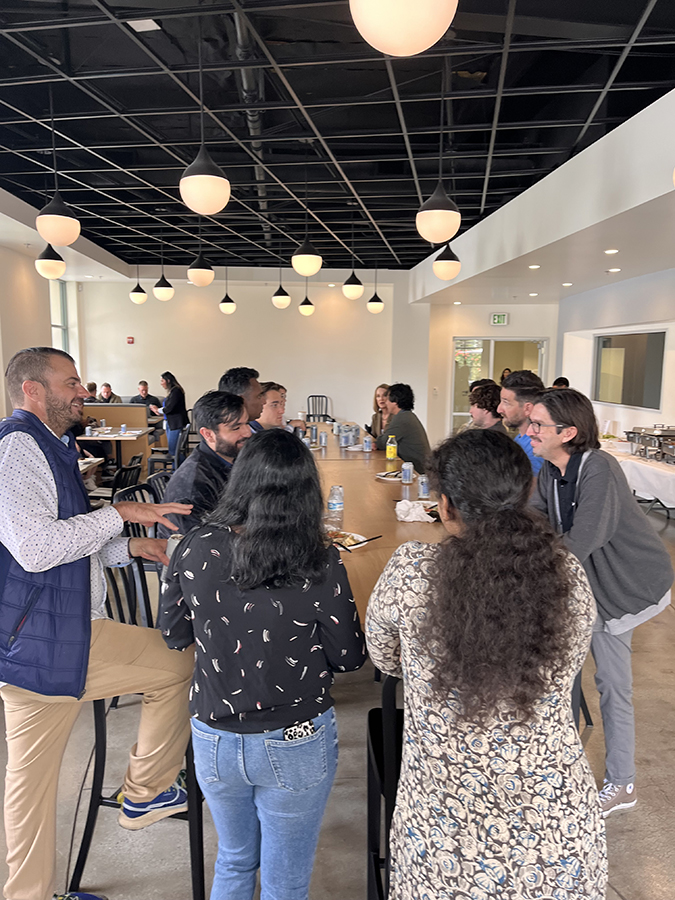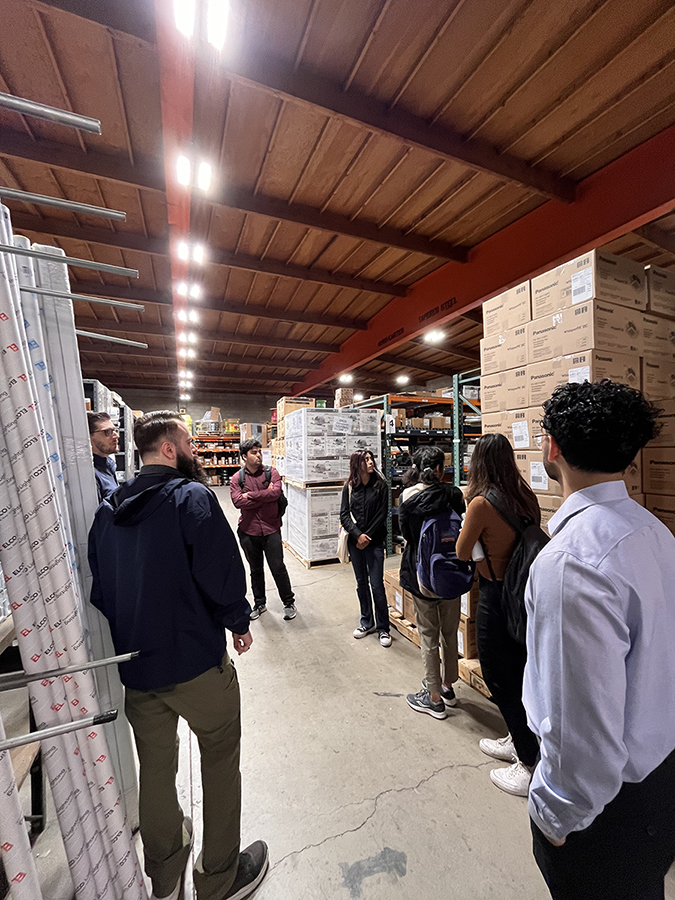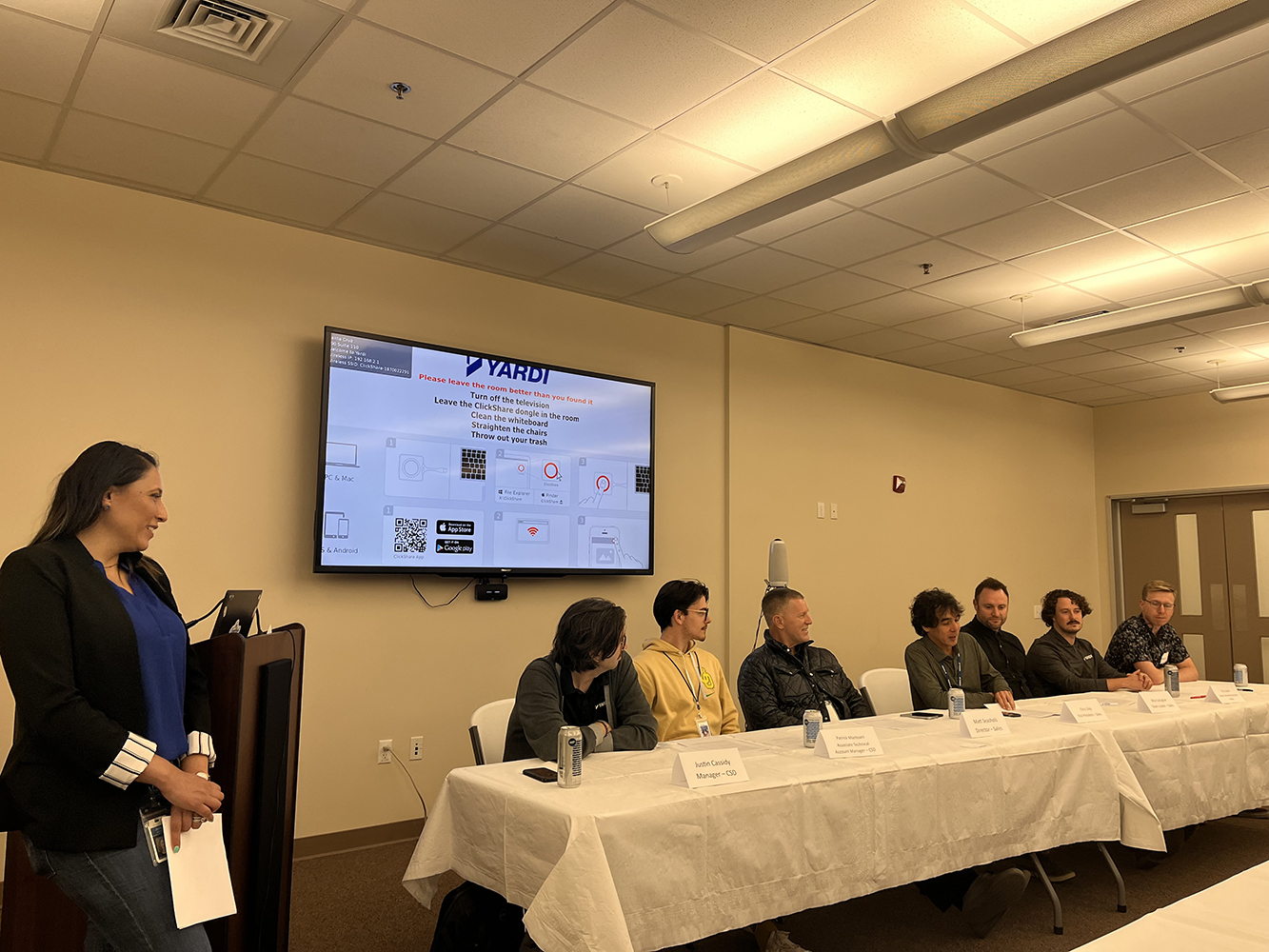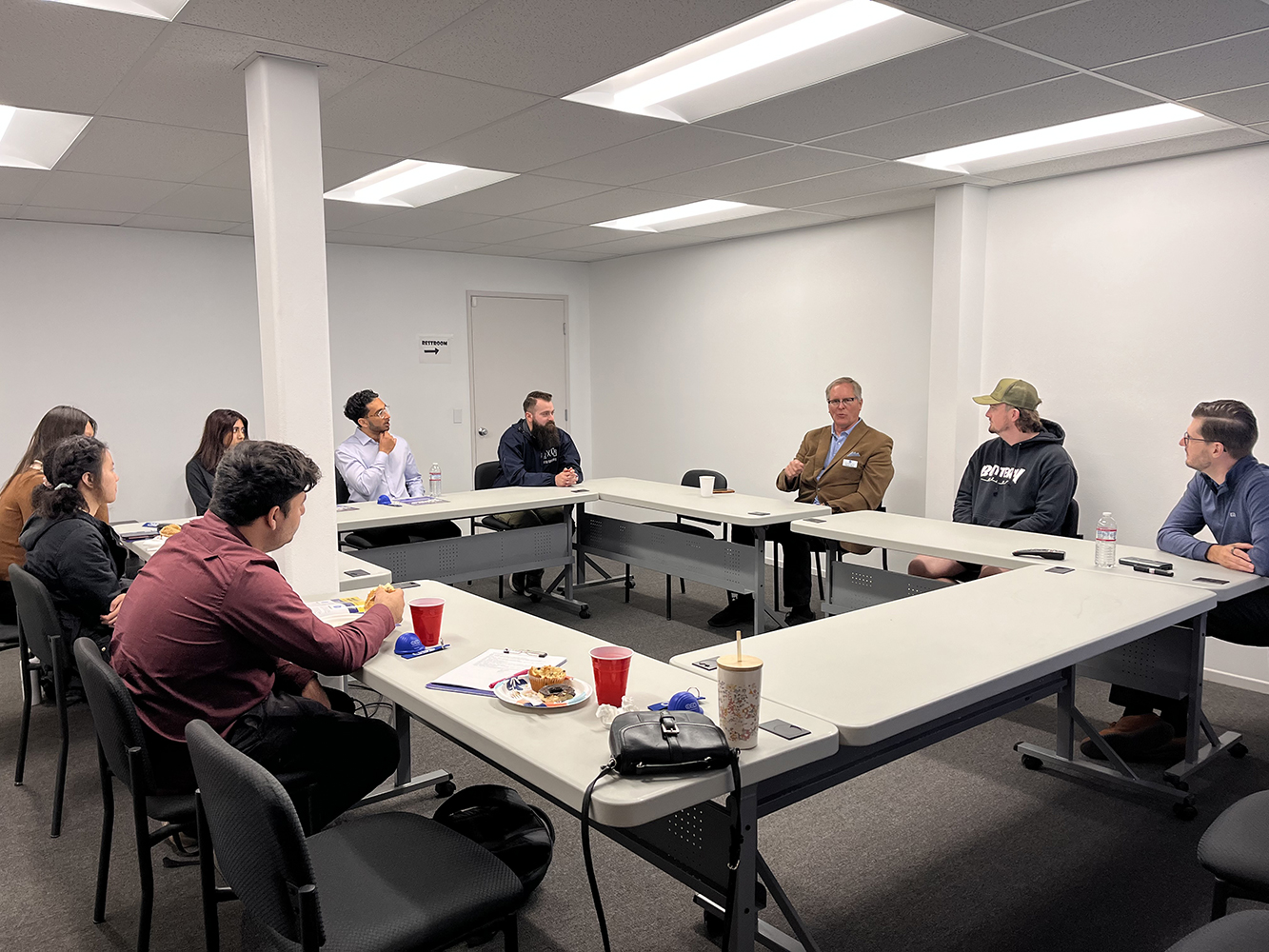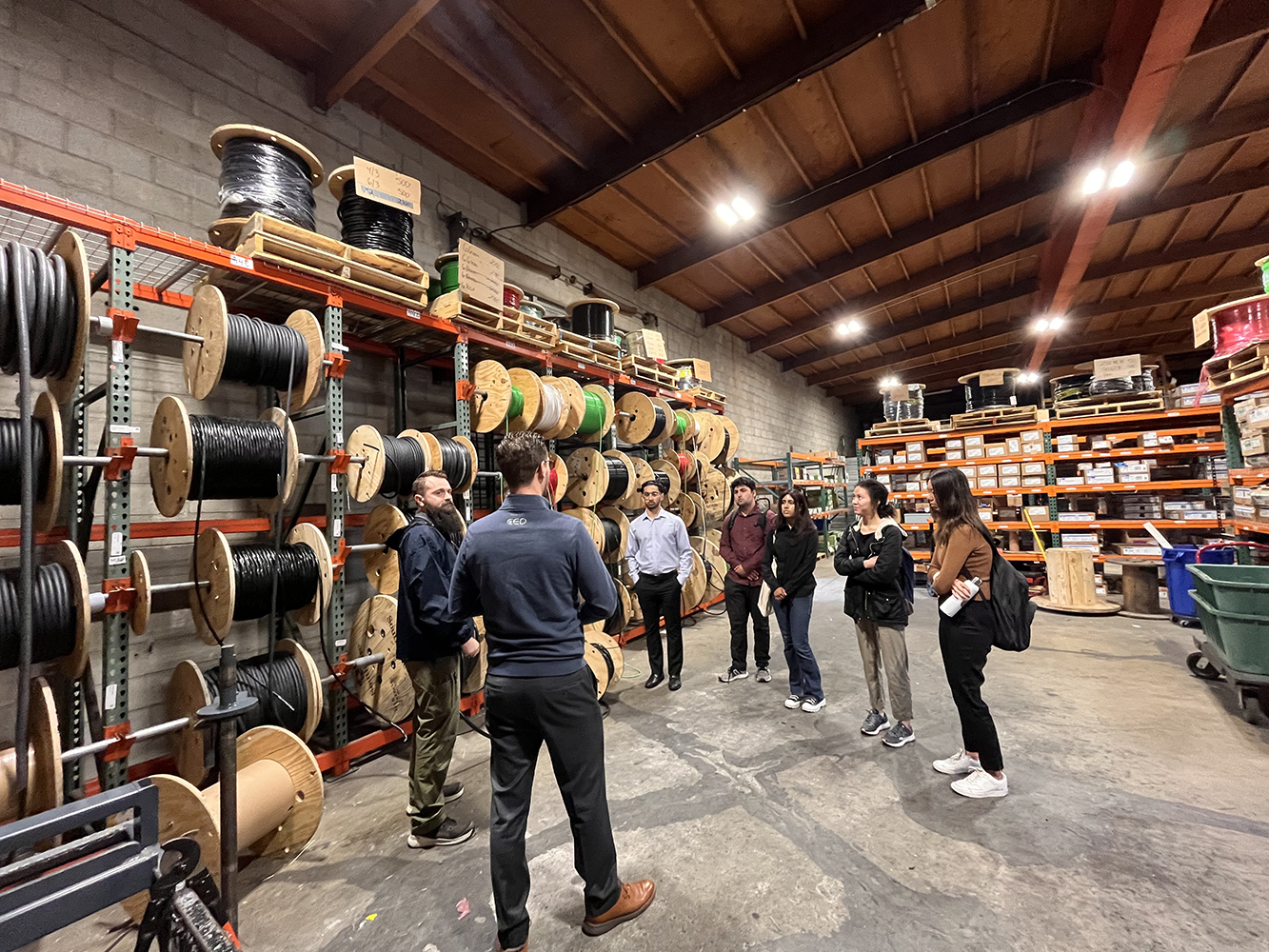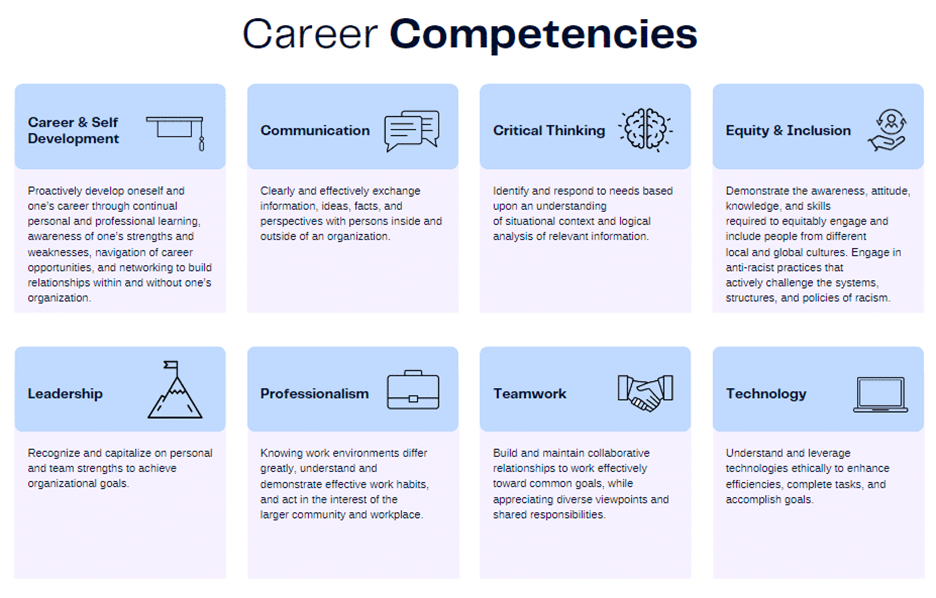Profile: Career Services
Innovating Careers and Services
A Discussion With the Executive Director of Career Services
A profile on Career Services perfectly aligns with this year’s theme for the Annual Report, which focuses on preparing the next generation of leaders. The vision of Career Services is to educate, empower, and inspire students to explore and leverage their education and unique strengths to address global needs and challenges through their careers. Highlighting the metrics that Career Services professionals use and how they collect data, particularly at a research university, offers a window into the innovative work Career Services has been doing.
Career Services Makes an Impact
Career Services leverages a strategic roadmap to outline its priorities and guide its work. This roadmap helps direct decision-making, resource allocation, and energy, focusing on the department’s desired impact. Many career centers nationwide share common goals, primarily supporting the career readiness of all students. UCSB’s Career Services roadmap emphasizes having a solid staff is essential to tackling the increasingly complex challenges of today’s job market, ensuring students receive the guidance and resources they need to succeed in their career journeys.
Currently, Career Services is intensifying its employer engagement strategies while exploring innovative student programming and engagement techniques. By leveraging technology, social media, and diverse outreach methods, Career Services aims to make its services accessible to students without requiring them to visit the office in person. Simultaneously, Career Services is fostering personal connections between students and employers. For example, the department enhances services by integrating employers into career education efforts and encouraging active participation in skill-building workshops, resume critiques and interview preparation sessions.
One initiative that Career Services is particularly excited about is employer site visits, where students visit local industries to gain an inside look at what it’s like to work for a company or organization. By immersing students in the work environment, they genuinely understand the company culture and potential roles. These visits are open to all students, and through strong partnerships with employers, Career Services ensures that Gauchos gain valuable exposure to a “day in the life” of an employer.
Employer Valued Skillset
Many pages in this year’s annual report focus on the importance of transferable skills. But what exactly are employers looking for?
Transferable skills are abilities developed in one context that prove valuable in many others. For example, honing communication skills through class presentations can translate seamlessly to the workplace, where you might be presenting business strategies or data analysis. Career professionals emphasize career competencies developed through deliberate planning and collaboration with employers. Nationwide, career services offices, in partnership with the National Association of Colleges and Employers (NACE), have identified key competencies students develop in academic and professional settings. These include Career & Self Development, Communication, Critical Thinking, Equity & Inclusion, Leadership, Professionalism, Teamwork, and Technology skills.
Students at UCSB build these competencies in various settings—whether in the classroom, student employment, internships, fieldwork, or research projects. Employers often value students who demonstrate leadership outside the classroom, seeking well-rounded candidates with diverse experiences and skills developed throughout their UCSB journey.
There’s a growing shift from traditional "hard" and "soft" skill labels. The old notion may have implied that hard skills were difficult to acquire, though many can be relatively straightforward. Conversely, what were once labeled soft skills—such as communication or teamwork—are actually challenging to master. Many employers now believe hard skills can be easily taught, while transferable skills, like those associated with emotional intelligence and interpersonal communication, require time and real-world experience to develop. This recognition is why career professionals now prefer "transferable skills" and "career competencies" to reflect the complexities of these valuable abilities better.
Measuring Career Success
Career Services collects data on how students access its resources and the types of appointments they schedule in a continuous effort to improve student services. This information informs decision-making, helping the department design programs and skill development workshops that align with student needs. With students' and employers' constantly evolving demands, Career Services prioritizes conducting small, frequent assessments to capture snapshots of their impact before advancing to new initiatives.
The department aims to evaluate all aspects of its services. Since the pandemic, a shift has been observed in how students engage with the office. In response, Career Services adapted by offering career information and services in formats students are now more accustomed to. A key focus has been short-form videos, such as "Tip Tuesdays," which provide quick career advice. The online platform Handshake has also introduced new features, including reels and short videos that students can scroll through for easily digestible tips. Career peer advisors have played an important role in creating student-friendly, bite-sized content delivered directly to their phones.
Interestingly, students tend to engage with Career Services multiple times or not at all—very few interact with the office just once. This insight has influenced the department’s strategy: when students engage with one reel, attend one event, or like one social media post, it often sparks further involvement. These assessments have reshaped the way Career Services interacts with students. The department has embraced the idea that a 30-minute appointment cannot cover everything, so students are given actionable steps for each interaction. For instance, a follow-up for interview preparation may be scheduled after a resume review.
Career Services employs a "career pathway" model. Regardless of their major, students can express interest in one of several career paths and receive tailored information and programming specific to that career path. The entire Career Services website has been redesigned to reflect these career paths, ensuring students receive personalized guidance. Career Services at UCSB continues to evolve through continuous assessments and customized services in response to students' changing needs.
